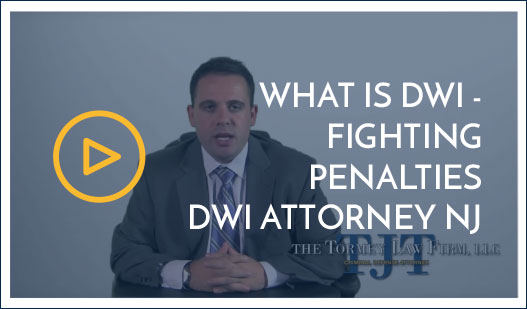Juvenile Rules Governing Custody and Detention in New Jersey
Juvenile Crimes Defense Lawyers in Garfield, NJ
Travis J. Tormey is an experienced criminal defense and drunk driving (DWI) attorney who represents clients charged with various juvenile offenses throughout Bergen County, including in Fort Lee, Elmwood Park, and Paramus. Mr. Tormey has handled thousands of criminal cases in his years of practice, making many appearances in Superior Court (felonies) and Municipal Courts (misdemeanors). In New Jersey, juvenile offenses are handled in Superior Court by the county prosecutor’s office. Over the years, Mr. Tormey has represented countless juvenile clients in criminal cases, including disorderly conduct, robbery, and shoplifting. He will use this invaluable experience as well as his long-standing relationships with local prosecutors and judges to get the best possible result in your case. Contact his office anytime at (201)-330-4979 for a free consultation.
“When my son was arrested for distribution of marijuana and MDMA, our world was a nightmare and we were scared. When we met Travis he reassured us that my son would be okay. When it came time for court we thought that our son was going to be on probation, or even worse, however, Travis was able to get my sons case dismissed. “Exactly what we wanted!” Thank you Travis for all your help. I would highly recommend the Tormey law firm they were excellent!”
– Former client’s mother
Juvenile Rules Governing Custody and Detention in New Jersey: R. 5:21-1
R. 5:21-1 is the Court Rule governing juvenile detention after initial placement into custody. The rule provides, in pertinent part:
(a) Initial Detention Hearing. If the juvenile has not been released pursuant to R. 5:21-2, an initial hearing to determine whether pretrial detention is required pursuant to the standards of R. 5:21-5 shall be held no later than the morning following the juvenile’s placement in custody, including holidays and weekends. Said hearing shall be on oral or written notice to the juvenile and the juvenile’s parents or guardian, all of whom shall be present at the hearing. The hearing, however, shall not be adjourned if such notice or process fails to produce the attendance of the parents or guardian. If a complaint has not been filed by the time the initial hearing is held, the juvenile shall be immediately released from custody. If the juvenile is not represented by counsel at the initial hearing and if the court determines that the juvenile should be detained, a second detention hearing shall be held within two court days after the initial hearing at which the juvenile shall be represented by assigned or retained counsel or by the Public Defender as the circumstances require.
(b) Probable Cause Hearing. If the juvenile is detained following the initial detention hearing, the court shall conduct a probable cause hearing within two court days after the initial hearing. Where a second detention hearing is required by paragraph (a), it shall be held with the probable cause hearing. If the prosecutor has filed a motion seeking waiver of jurisdiction pursuant to Rule 5:22-2 or indicates an intention to file such a motion, or the court determines based on the circumstances that such a motion is likely, the court shall permit the parties to present evidence regarding the issues of age of the juvenile and other standards for referral which may be addressed at the time of the probable cause hearing. If the court determines that there is no probable cause to believe that the juvenile has committed the conduct alleged in the complaint, the juvenile shall be forthwith released. If probable cause is found, detention review hearings shall be conducted as provided in paragraph (c).
(c) Detention Review Hearing. If the court determines that the juvenile should continue to be detained, a detention review hearing shall be held within 14 court days after the prior detention hearing. If detention is again continued, review hearings shall be held thereafter at intervals not to exceed 21 court days. The juvenile shall be represented by counsel at all such hearings.
(d) Findings. Whenever the court places a juvenile in detention, it shall state the reasons therefor on the record, giving consideration to the following factors among others:
(1) The nature and circumstances of the offense charged;
(2) The age of the juvenile;
(3) The juvenile’s ties to the community;
(4) The juvenile’s record of prior adjudications, if any; and
(5) The juvenile’s record of appearance or non-appearance at previous court proceedings.
(e) Credit for Time Served. A juvenile shall receive credit on the term of a custodial sentence for any time served in detention or court-ordered shelter care between apprehension and disposition.
Contact a Juvenile Criminal Trial Lawyer in Bergen County, New Jersey
Travis J. Tormey is a highly respected negotiator and trial lawyer with offices located in Hackensack, New Jersey. Contact him anytime at (201)-330-4979 for a free consultation about your child’s juvenile justice proceedings


